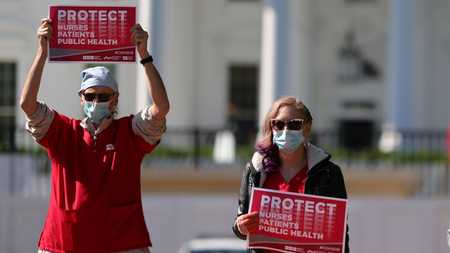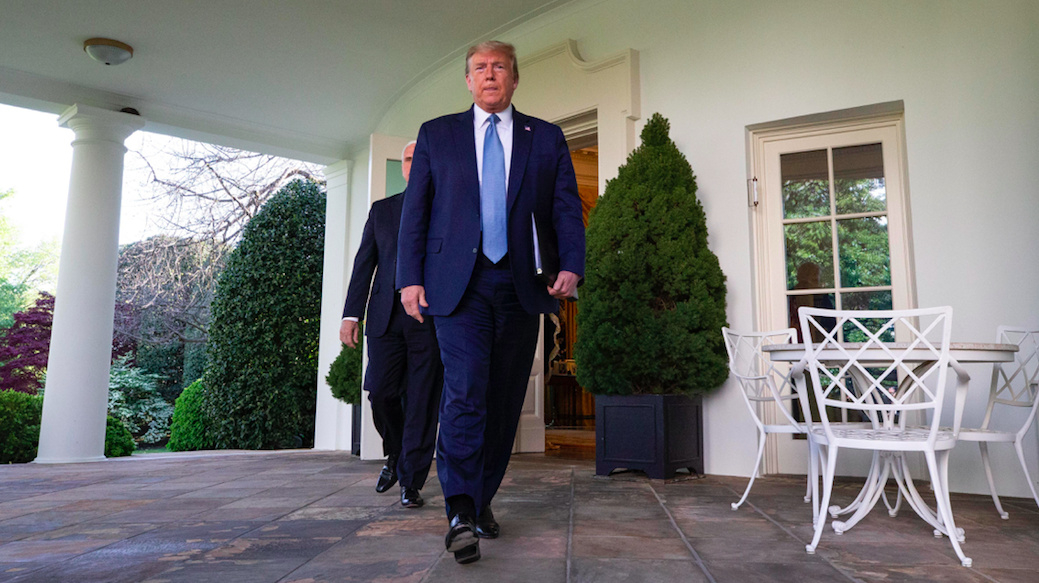
Editor's note: Tom Fowdy is a British political and international relations analyst and a graduate of Durham and Oxford universities. He writes on topics pertaining to China, the DPRK, Britain and the U.S. The article reflects the author's opinions, and not necessarily the views of CGTN.
The U.S. independent media watchdog foundation, Fairness & Accuracy in Reporting (FAIR) on May 15 released an article asserting that America's "corporate media" were "setting stage for new cold war with China" with an aggressive portrayal of Beijing as a "as a hostile power that needs to be kept in check." In making its analysis, the report explored a series of belligerent op-eds in a number of leading American publications, as well as by politicians, which called for "fire and brimstone" and indignation against China over the COVID-19.
It highlighted the persistent invocation of Cold War rhetoric, orientalism which paints China as "predatory" and pushes a "clash of civilizations," an over emphasis on the righteous and innocence of America in its present situation, the portrayal of conspiracy theories such as the "Wuhan laboratory leak" as mainstream fact without scrutiny, encouragement of attacks on the World Health Organization (WHO) and the dramatic exaggeration of China as a political and military threat.
It subsequently concluded that: "Corporate media distortions and bombast are priming the American public to see China as a treacherous villain that has to be forcefully confronted, perhaps with violence."
Although a great deal of the present rhetoric on China is often blamed on the Trump administration, reminding ourselves that the U.S. media to various degrees are encouraging and promoting this rhetoric is a cold awakening to just how deep inset the anti-Beijing push lies in America, and that this phenomena is not going to change any time soon.
The impact of COVID-19 and the White Houses' own failures have produced an extraordinary shockwave which has shaken the legitimacy of the U.S. and its ideology on a political, social and economic level. Because this dents the psychology of American exceptionalism and its sense of monopoly over truth and success, the system has no other way to respond but to lash out.

U.S. President Donald Trump steps out of the Oval Office, followed by Vice President Mike Pence, to speak about the coronavirus in the Rose Garden of the White House, April 15, 2020. /AP
U.S. President Donald Trump steps out of the Oval Office, followed by Vice President Mike Pence, to speak about the coronavirus in the Rose Garden of the White House, April 15, 2020. /AP
The COVID-19 epidemic is one of the greatest shocks to the U.S. system ever experienced in modern times. Although there are plenty of historical examples to choose from, the COVID-19 has been broader and deeper in not only closing down the economy but grinding life as it is known to a halt.
Whilst can be said about Trump's personal failures in preventing this situation including his focus on the economy, the country's overall response to the virus was also structural through its fragmented federal system and also ideological in that it perceived the early outbreak in China as the product of a political system and culture it deemed to be inferior and therefore not applicable to the United States.
As a result, the rapid turn of events within America and the accumulation of about 1.4 million cases has been met with an ideological cognitive dissonance which portrays the virus as a foreign injustice which does not truly "belong" in the country. The repeated emphasis on China's cover up is also a product of a normative belief that Beijing could have not feasibly done better than the U.S. in this situation; therefore deception is the only explanation. This has, both indirectly and directly, mandated a politics of blame, self-righteousness and revenge not just within the Republican Party, but across the entire political spectrum.
This in turn has shaped the underlying reporting sentiment as set out in the FAIR report, even if some of the selected outlets are not favourable to Trump's own actions at the same time or 100 percent aligned with the Republican Party. In this case whilst the President receives some scrutiny over his pandemic response on a domestic level, the media (although as is common with all U.S. foreign policy) takes a position which does not scrutinize Trump's aggressive postures towards China but in fact strives to support them and thus portray Beijing as a binary opposed "other" that must be confronted.
As the article notes, on this level they do not present a complete representation of the facts. In general, never in any circumstances do such outlets stand in the way of broader U.S. foreign policy goals or objectives (despite freedom of the press) but instead endeavour to support them and "manufacture consent."
In this case, it should be noted that the U.S. mainstream media are also in the game of whipping up a toxic climate against China vested in the idea of blaming Beijing for all of America's problems, and an underlying sense of injustice over the COVID-19 which is maximized into the broad hysteria and weaponization of fear which have been longstanding tools of American Foreign policy discourse.
They are not, despite American values, truly holding the President's blame game to account, but in fact deliberately and willingly exacerbating it. Thus all the flaws, problems and injustices within the American political and social system are now being pinned on China. The consequences will be disastrous.
(If you want to contribute and have specific expertise, please contact us at opinions@cgtn.com.)